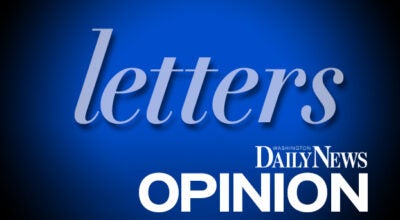The greatest obstacle we face
Published 4:25 pm Monday, June 5, 2017
To the Editor,
From 2004 through 2007, the county budget was in surplus due to a boom in the housing market. However, by 2010 the waste associated with the Economic Development Commission left taxpayers facing a series of deepening deficits. Let’s be clear: even during the 2008-10 recession the revenue from property tax collections never fell, but years of ridiculous spending by the county board had run the county’s finances into the ground.
By 2010, the county commissioners had taken the newly completed property revaluation, coupled it with a 53-cent per $100 ad valorem tax rate, and began four years of surplus tax collections that more than doubled the county’s General Fund reserves.
The county collected $53.9 million in 2012-13 and spent $51.8 million. In 2013-14, the county collected $56.2 million and spent $51.7 million, and between 2010 and 2014, the county’s Unrestricted General Fund balance rose steadily from $8 million to nearly $20 million.
Having built a war chest out of other-peoples’-money the county commissioners began searching for pet projects to spend it on. In 2016-17, county expenses rose to $62.9 million, and depleted $5 million from the General Fund balance. To prevent the General Fund from collapsing even further, the board raised taxes and fees by $2.5 million, and took advantage of $600,000 from the restructured state sales tax. In 2017-18, the county is expected to spend $62.5 million, and will need to borrow $3 million.
In just three years, the expected yearly expense of county government has risen by $11 million. This represents an increase in recurring yearly cost that averages $595 per year when spread across Beaufort County’s 18,500 households.
If spending by the county board remains at current levels or goes higher, as government spending often does, then taxes will need to rise along with spending. Currently the county has three principal streams of revenue: $33 million in property taxes, $9 million in state sales taxes, and $17 million from fees and other sources. Revenue totals $59 million. We are spending $62.5 million. This leaves a shortfall in revenue of $3.5 million, and the logical candidate for the job of closing this gap is the ongoing revaluation and its accompanying change in the property tax rate.
Since government generates no revenue except what it takes from private individuals and businesses, property taxes will need to be ratcheted higher. The net result will be that local residents will have less left to spend at local businesses; local businesses will have less for reinvestment in plant and equipment, and less to pay out in wages and benefits. Remember, when county commissioners spend the dollars you’ve earned, you can’t use those dollars to feed your family, expand your business or pay better wages.
This actually gets worse.
Beaufort County’s population has drifted lower since the 2010 census. The average age of our residents has ticked up. The number of people in the labor force has ticked down. Fewer and older people are left paying more and more for government, while young people simply move away.
This community’s greatest obstacle is its own county board.
Warren Smith
Beaufort County


